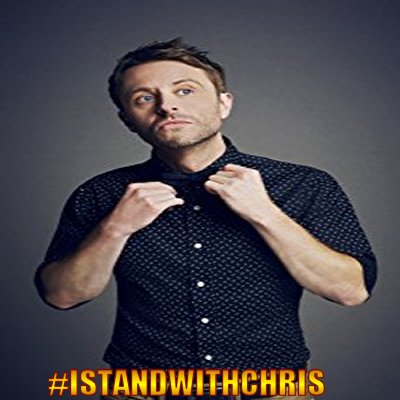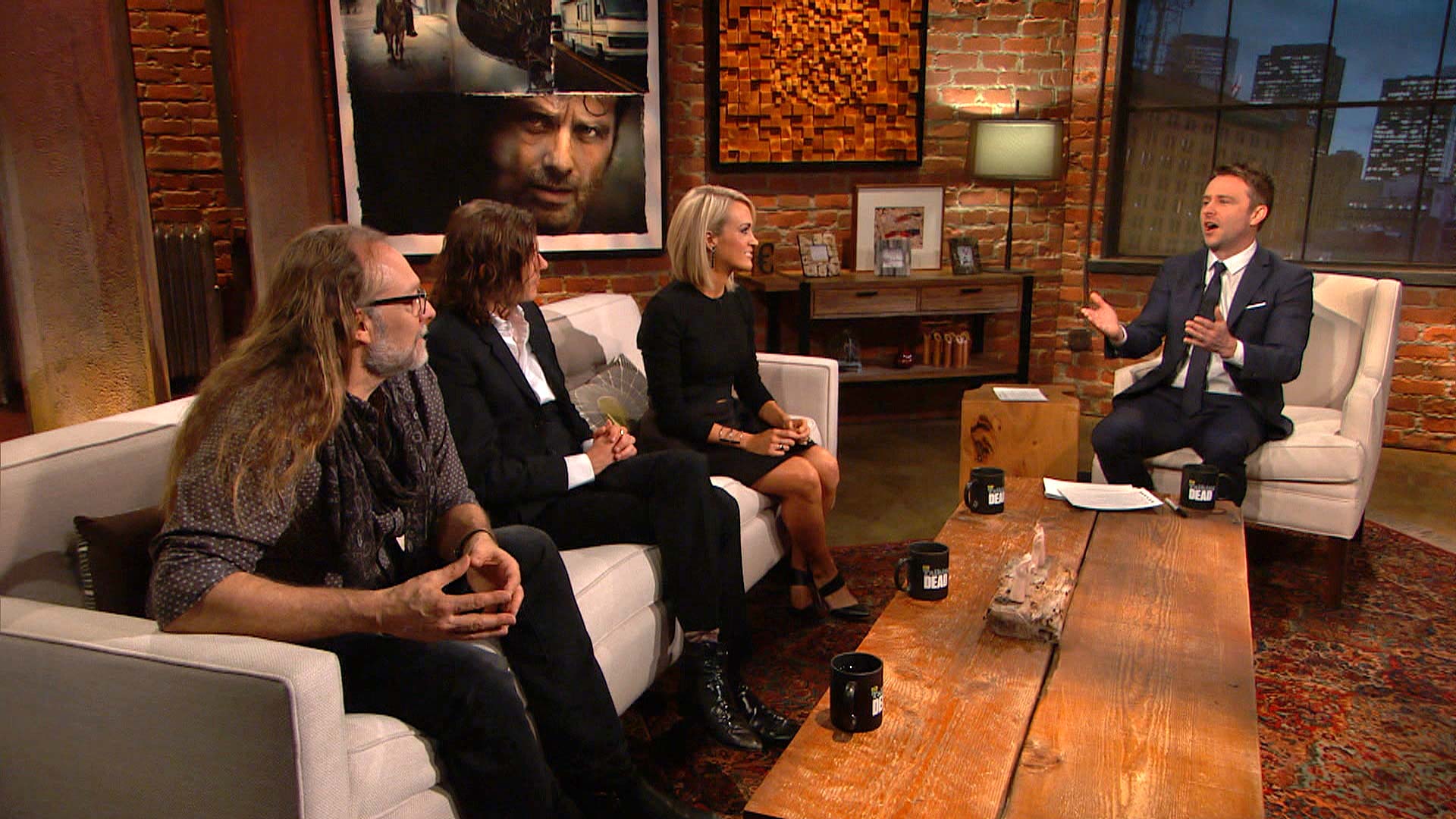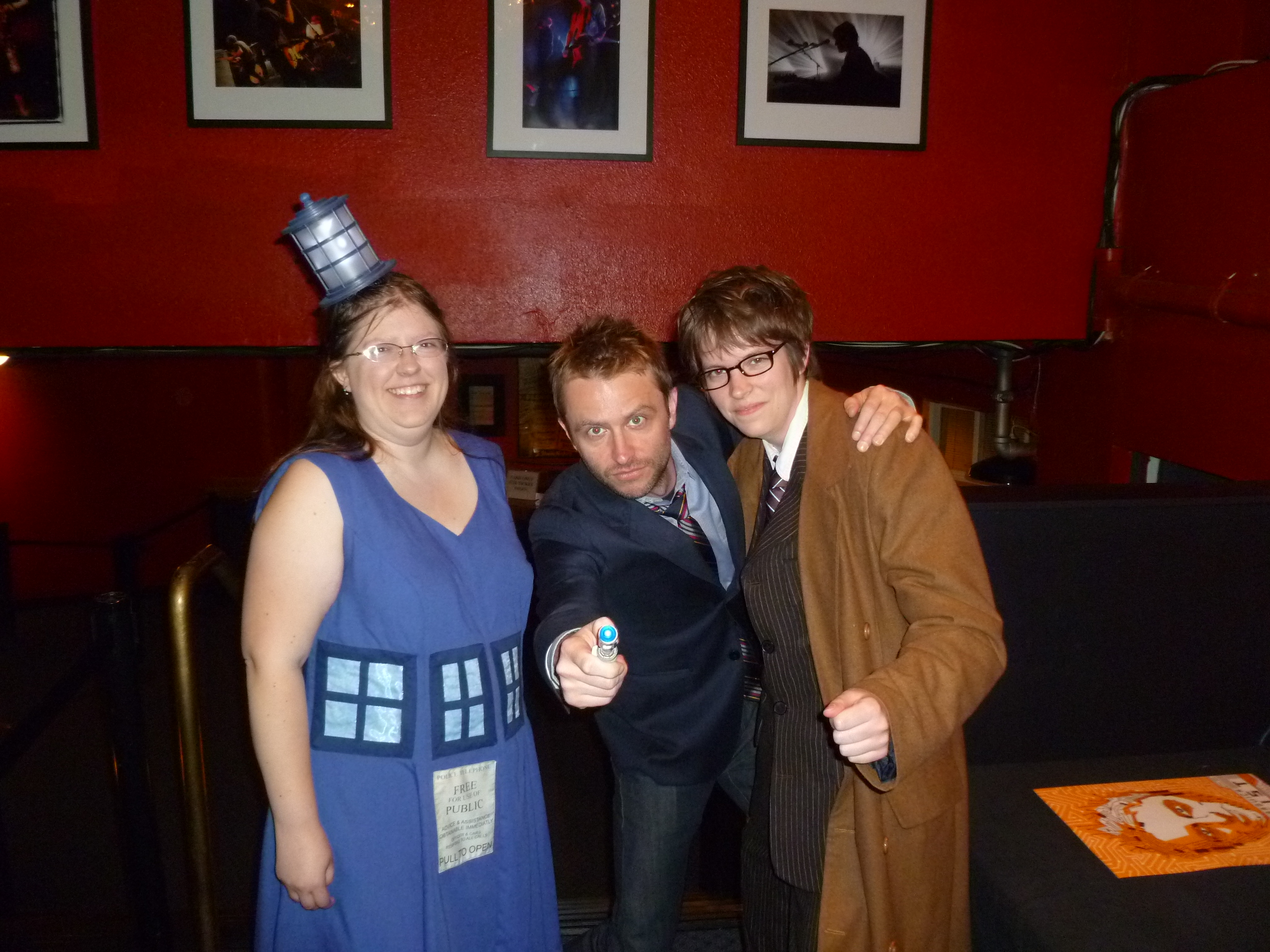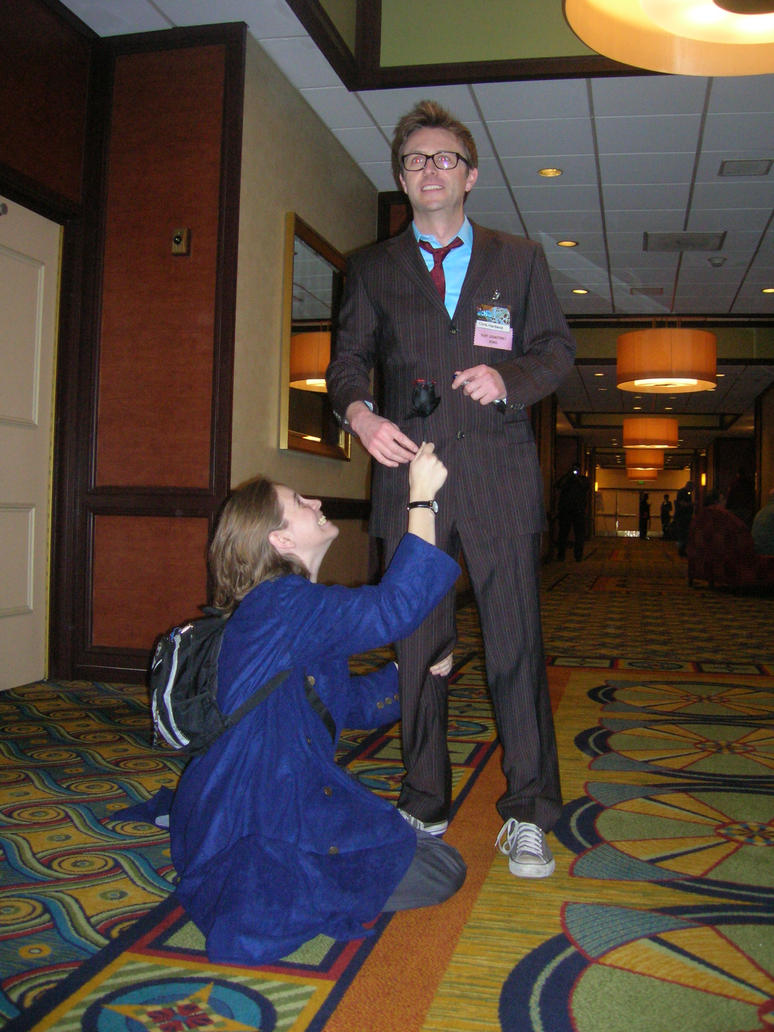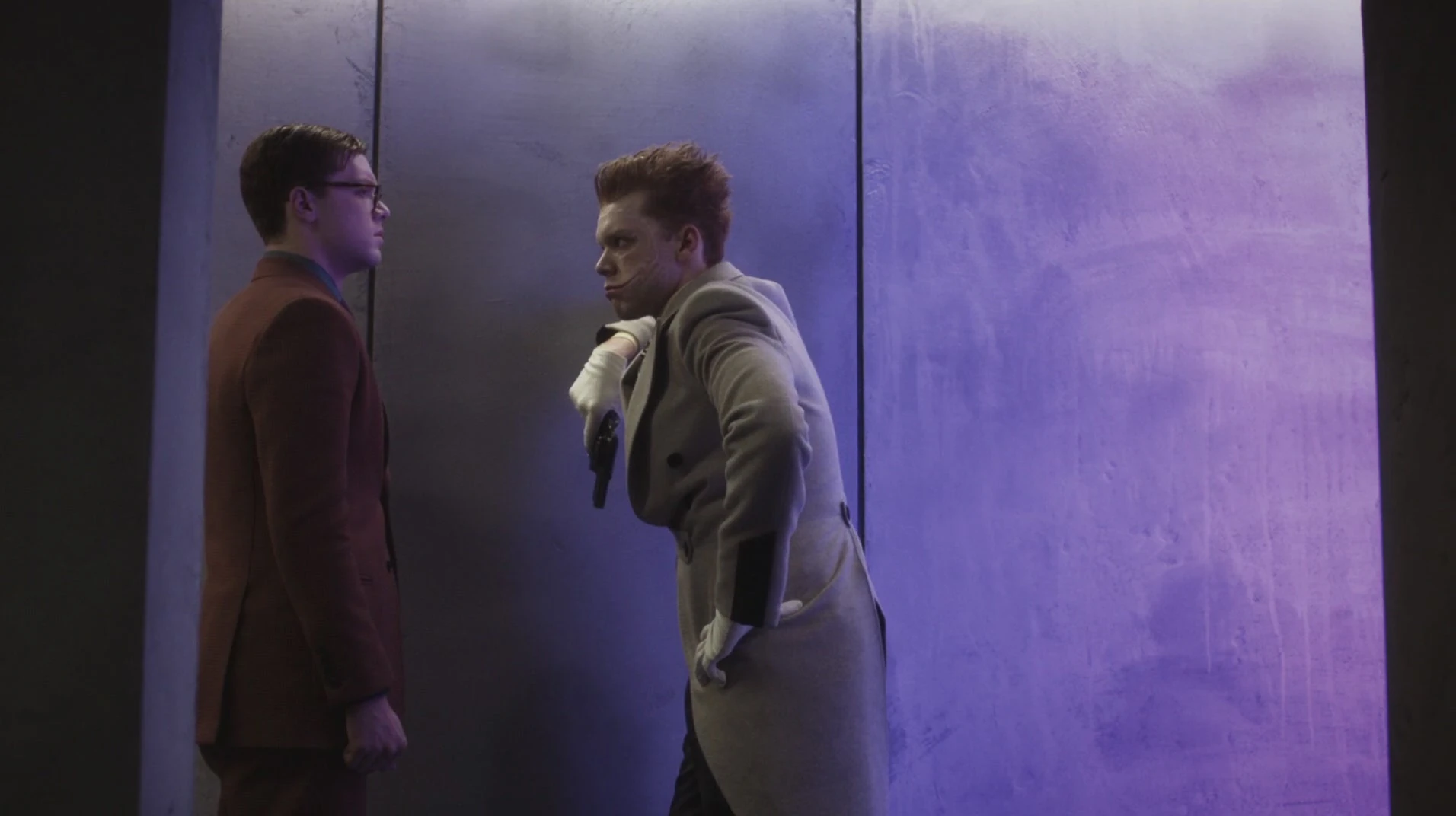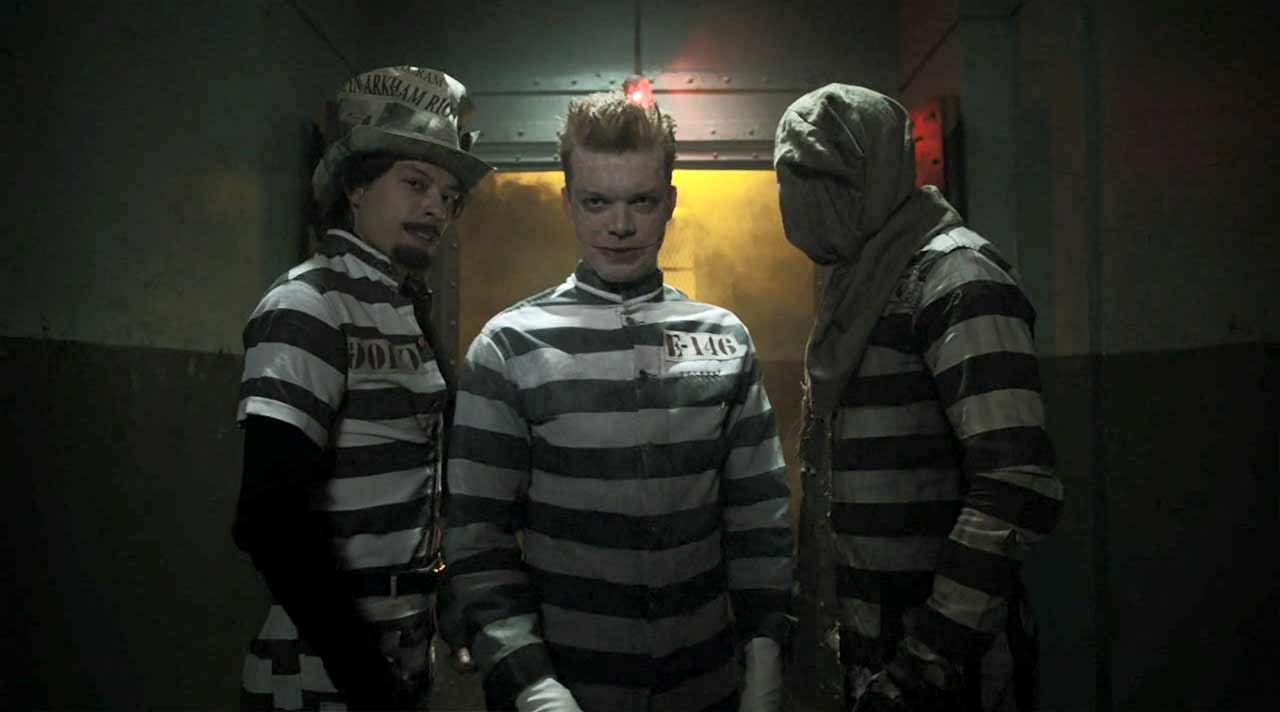Tuesday, July 31, 2018
Summer Under the Stars 2018: An Introduction
It's time once again for one of my favorite annual traditions: Turner Classic Movies' Summer Under the Stars.
Each August, TCM devotes twenty-four hours to the films of one particular star. Some stars are internationally known, others more obscure. I've been blessed to participate in the annual Journeys in Classic Film Summer Under the Stars Blogathon for about two to three years; while this year sadly we don't have my favorite all-time star, Claude Rains, we do have a host of other actors/actresses from which to draw on.
TCM has a pretty standard method when selecting a SUTS honoree: one or two foreign-language stars (this year, it's Marcello Mastroianni), a silent film star (that would be Harold Lloyd) and a couple of living stars (Doris Day, Carroll Baker, Clint Eastwood and Barbra Streisand fit that bill).
This year will be my most ambitious: 22 out of 31 entries, a record for me. Who knows, maybe one year I will do one for every star featured.
However, for this year I think 22 is quite a healthy number, especially given that I also have the Plaza Classic Film Festival and the regular baseball season also happening at the same time. August may be the only month to have no holidays, but it will certainly not be without major events.
Sadly, Kristen Lopez, head of Journeys in Classic Film, informed me that she will not be having her accompanying SUTS Blogathon sponsored this year. However, I am going to keep to the Blogathon usually sponsored by Journeys in Classic Film and hope things settle for next year. Even if Journeys in Classic Film isn't having its Blogathon, I fail to see why I cannot do my own informal version of it.
Here now is my List for my contributions to 2018's TCM Summer Under the Stars (Unofficial) Blogathon (all which may be subject to change):
Aug. 1: Frank Sinatra (Young at Heart)
Aug. 2: Myrna Loy (Myrna Loy: So Nice to Come Home To)
Aug. 3: Lionel Atwill (The Age of Innocence)*
Aug. 4: Clint Eastwood (Million Dollar Baby)
Aug. 5: Katherine Hepburn (The Iron Petticoat)
Aug. 7: Harold Lloyd (For Heaven's Sake)*
Aug. 8: Jeannette McDonald (The Sun Comes Up)*
Aug. 10: Dorothy Malone (Basic Instinct)
Aug. 11: Gary Cooper (You're in the Navy Now)
Aug. 12: Doris Day (A Retrospective on the Rock Hudson/Doris Day Films)*
Aug. 15: Peter Finch (Sunday Bloody Sunday)*
Aug. 17: Barbra Streisand (Yentl)*
Aug. 19: Judy Garland (I Could Go On Singing)
Aug. 20: Stewart Granger (Madonna of the Seven Moons)
Aug. 22: Dana Andrews (The Politics of The North Star)*
Aug. 24: Peter Lorre (Beat the Devil)
Aug. 25: Carroll Baker (Star 80)*
Aug. 26: Anthony Quinn (This Can't Be Love)
Aug. 27: Agnes Moorehead (All That Heaven Allows)
Aug. 29: Lauren Bacall (Young Man With a Horn)*
Aug. 30: Marcello Mastroianni (A Special Day)*
Aug. 31: Joan Crawford (The Gorgeous Hussy)
On a few entries, I am going beyond just a review of a star's film. Myrna Loy's entry is from a TCM documentary on her life and work. Dorothy Malone's entry is from a film where she essentially makes a cameo, but as she is credited I think it falls within the guidelines. Day's and Andrews' entries are not so much about a film or films but reflections on them. Quinn's entry is from a television movie. Still, I don't think we'll quibble too much on such pesky details.
I hope my views will be of note and I hope everyone enjoys this year's Summer Under the Stars.
*The films marked with an asterisk indicate it will be shown on TCM as part of their Summer Under the Stars programming. For Doris Day's day, all three of her films with Rock Hudson: Pillow Talk, Lover Come Back, and Send Me No Flowers, will be shown back-to-back-to-back.
Monday, July 30, 2018
Did Chris Hardwick Get Away With It? More Thoughts
An internal investigation by AMC (formerly American Movie Classics) has concluded to reinstate Talking Dead host Chris Hardwick after allegations of abuse and using his influence to blackball his ex-girlfriend/accuser surfaced against him. Chloe Dykstra, whose essay brought about Hardwick's now-temporary removal from AMC and the San Diego Comic-Con panels, chose not to participate in the investigation.
Hardwick is, to my knowledge, the first man accused of abuse in the #MeToo era to survive the accusations and return to his career. He was vociferously defended online, with petitions demanding his return to AMC's programming. I at first did not understand why of all people Hardwick, someone who does not have the same name recognition or peer respect as a Harvey Weinstein, Kevin Spacey, Garrison Keillor or Charlie Rose among so many men charged of inappropriate behavior towards women, inspired such intense defense and loyalty, then I had some revelations.
This is just my own personal theory, but I think it was not so much Hardwick himself that was defended by so many, but fandom itself. All those who defended Hardwick see him in a particular light: essentially as an extension of themselves. They see him as they see themselves: 'a fan' of the shows which they themselves are fans of, particularly The Walking Dead.
They see him as 'one of "us"', the Nerd Who Made Good, the cheerful, upbeat, cheery host delving into the nuances of certain shows: Walking Dead and its prequel Fear the Walking Dead, Better Call Saul, Preacher, a whole cavalcade of AMC programming and other shows like Doctor Who. The attack on Hardwick was by extension an attack on them. These fans needed Hardwick with whom they could metaphorically share in Rick Grimes' newest battle with zombies and Saul Goodman's moral quandaries.
To them, he is an embodiment of Nerd Culture Itself, a metaphorical prophet and spokesman for their own cosplaying and fan-fiction. As such, like any cult, when The Leader is attacked by outside forces, the followers must defend him at all costs.
How else to describe this passage from the Change.org petition calling for his reinstatement (emphasis mine): "I need my weekly therapist to reassure me that even when a character dies on one of my favorite shows that we are not alone. Let's be there for Chris, like he has been there for us."
How Hardwick has actually 'been there' for Carrie Lynne, the woman who started the petition, apart from being a cheerleader on television for a particular show she happens to be passionately devoted to, she does not answer. Was Chris there for her when someone she knew personally, a friend of family member, actually died? Did Hardwick attend any funerals she went to and comfort her? How about any birthdays, weddings, quinceaneras, bar/bat mitzvahs? Did Chris provide personal therapy if and when she went through a bad breakup? Has Hardwick ever had Carrie or any other Walking/Talking Dead fan over for coffee, for dinner at his home?
I'm going to say 'no', but this sense of personal connection between the fans and someone they more than likely have never actually met outside a brief meet-and-greet, panel discussion or autograph signing/picture is what caused in my view Hardwick be one of the most and loudly defended men accused of improper behavior towards a woman.
I don't think Garrison Keillor inspired such devotion.
Chris Hardwick may now be grateful to Carrie Lynne for spearheading the petition, but I doubt he knew who she even was prior to it, let alone care. For Carrie Lynne and all 44,617 signers however, Chris is more than a mere host. He is Their Friend. He Is Them.
They did not see him as I see him: a shill, a lackey, a charlatan, a fraud, a shyster, a tool. I have a darker vision of Hardwick, as someone who is essentially a de facto if not an actual de jure employee of whatever television or film studio offers up money and promotional consideration to him. He curries favor with production companies, continuously kissing up to them and peddling to his devotees whatever the networks/studios offer, no matter how awful.
It won't matter that Justice League is terrible or that Doctor Who has been on a downward slide for a few years; there will be Chris Hardwick, saying, at least initially, how fantastic it all is. As a face of AMC, he was there not so much to 'talk' about the shows as an ardent, independent viewer but as a paid spokesman.
I'm at a slight disadvantage in that I have never seen either The Walking Dead or Talking Dead, so I leave it to readers to guide me on this point: has Chris Hardwick ever said anything negative or critical of any AMC show?
Perhaps not on Talking Dead, as the show is probably nothing more than an infomercial for Fear/The Walking Dead. However, what about on his podcasts or at The Nerdist? Perhaps someone at his old site might write an occasional negative review of something, but by and large Hardwick has been at the heart of being an advance man for all these shows and films without actually saying it out loud for full disclosure as they say.
I have been open about my disdain for Hardwick and his 'many-headed beast', The Nerdist. My disdain for both began when Hardwick hosted the After Deep Breath special on BBC America. This 'special', billed on my DISH Network guide as being hosted by 'super-fan' Hardwick, was ostensibly done to talk about the Doctor Who Series/Season Eight premiere episode Deep Breath. One of the 'guests' on the After Deep Breath special was Doctor Who writer/actor Mark Gatiss, someone who is also heavily involved behind the scenes of this science-fiction show.
As a side note, I can imagine that the After Deep Breath special is how Talking Dead and/or Talking With Chris Hardwick is, which is where I get my impressions of a chat show I have never seen myself.
That Gatiss was a guest on the After Deep Breath special in and of itself is neither surprising nor wrong. It was at the end of the special when my views of Hardwick turned from mere puzzlement at his popularity to downright hostility. As our cheerful little host was waving to the camera and all but sing-song saying "Bye-bye", I caught something in a 'blink-and-you-miss-it' closing credit that troubled me immensely.
One of the executive producers of the After Deep Breath special was none other than Mark Gatiss.
Why did this cause such ire and trouble for me? It is because I found the whole thing went from a celebration of Doctor Who to a more insidious, almost incestuous union of the production and the 'independent' viewer.
I compared this in my mind to whenever CBS Sunday Morning profiles a certain author or ABC has a report on a Disney-related story. They make note that the author's book is published by 'a division of CBS' or that Disney is the 'parent company of ABC'. That is a message to viewers that they are, in theory, upfront about any potential 'conflict of interest', that said report is not intended to be an infomercial.
Hardwick and BBC America in this case made no such distinction. A simple statement from Hardwick stating, "Mark Gatiss is not just a guest but an executive producer of the After Deep Breath special" would have been enough, but as far as I remember Hardwick made no such mention. In short, he let the audience believe that Gatiss was there merely to discuss how wonderful Deep Breath was, not that Gatiss was essentially in charge and that Hardwick was at least on this occasion his employee. If Deep Breath was awful, Hardwick was never going to say it out loud to Gatiss' face.
It just seemed somehow dishonest, wrong, insincere, even deceptive.
I found Deep Breath awful, and maybe Hardwick and my Nerdist bete noir Kyle Anderson genuinely found it all wonderful and brilliant. However, if in this case Hardwick had actually thought Deep Breath was crap, would he have said so on the After Deep Breath special? How could he when his boss was involved in the show he was essentially reviewing/discussing?
I figure that if Hardwick had been around during Classic Doctor Who and he had an After The Twin Dilemma special, Hardwick would have raved about how wonderful the Sixth Doctor's debut story was. He wouldn't have told then-script editor Eric Saward or then-producer John Nathan-Turner that it was one of if not the worst Doctor Who stories of all time. If Saward or JNT had been the executive producers of a hypothetical After The Twin Dilemma special, would they have been accused of being in cahoots with a willing Hardwick?
To my mind, this all smacked of collusion, of something close but not similar to the quiz show scandals of the 1950s, when 'contestants' on various game shows knew the answers before the questions were asked. The shows pretended that the 'contestants' were on the level when the fix was already in, deliberately misleading the audience into thinking they were watching something 'unscripted' when it was all a front.
I think a similar argument could be made against so-called 'reality shows', but that is another subject.
By failing to disclose that his 'guest' Mark Gatiss was also his boss, to my mind Chris Hardwick was misleading his audience at the very least, downright lying to them at the very worst.
Ever since then, I have found Chris Hardwick to be a front, a deceitful figure behind the grinning persona.
However, none of that actually answers my original question: did Chris Hardwick get away with it? Let's look at a few details.
The AMC statement is specifically worded (emphasis mine).
"Following a comprehensive assessment by AMC, working with Ivy Kagan Bierman of the firm Loeb & Loeb, who has considerable experience in this area, Chris Hardwick will return to AMC as the host of Talking Dead and Talking with Chris Hardwick. We take these matters very seriously and given the information available to us after a very careful review, including interviews with numerous individuals, we believe returning Chris to work is the appropriate step."
Contrary to what the #IStandWithChrisHardwick crowd has been shouting, it does nowhere near state that he is 'innocent' of anything Dykstra said. It merely states that their assessment of the case led them to restore Hardwick to his position with the network. Since Dykstra chose not to be part of the 'interviews with numerous individuals', just whom did AMC actually interview on the matter? Who else would have had knowledge of the specifics of the case?
They could have interviewed people who worked on Talking Dead I imagine, but one wonders what kind of information they could have provided as to whether or not Hardwick ordered Dykstra to cut off her male friends or whether he used his influence to keep her from getting employment.
How did Loeb & Loeb discover which companies Hardwick may have contacted to allegedly tell them not to hire Dykstra? Did they find the doctor who treated Dykstra for an ectopic pregnancy to verify if Hardwick really was asked by Hardwick when she would be ready to have sex? Did they track down any former friends of Dykstra who could tell them she broke off their friendship on Hardwick's orders? What was 'the information available to (them)'? Will we the general public be able to see the report and its conclusions for itself?
Mudding the waters is that Loeb & Loeb, the law firm which handled the Hardwick investigation, appears to also represent the Hearst family. Hardwick is married to Lynda Hearst, an heiress to the still-wealthy family. If that is the case, then the people investigating Hardwick also in a sense work for Hardwick.
This again suggests collusion, a circling of the wagons to protect Hardwick. The network whom Hardwick's most associated with did not actually clear him of any wrongdoing. The firm investigating Hardwick may have had a conflict of interest.
Could it be that again, the fix was in, that the investigation's conclusions was a foregone conclusion? Was AMC more concerned about a loss to their brand than on whether or not their smiling face blacklisted someone weaker to get back at them?
The Hardwick saga has been fascinating on so many levels. Some will see this as a case of a man who managed to have his career restored after ugly stories emerged. Others will see this as a story of someone richer and more influential managing to use said wealth and influence to survive what has sunk or at least heavily damaged others.
For me, one of the takeaways of all this is the rank hypocrisy of Chris Hardwick and his fans. For so long, Hardwick loved to lecture us about #MeToo, how 'all women/accusers should be believed'. I do not remember Hardwick calling for 'due process' when Louis C.K. was accused, or when Joss Whedon was accused, or when Aziz Ansari was accused, or when Jeffrey Tambor was accused. I do not remember Hardwick's fans rushing to their defense either, insisting that everyone is 'presumed innocent until guilty'.
Rather, Hardwick was among the first to say we needed to believe the accusers, that we needed to expunge ourselves of all those in positions of power who did terrible things to women. They were 'victims' or 'survivors', to be believed in all cases and to have those accused shunned and run out of the business. Hardwick's fans agreed with him.
Once Hardwick himself was accused, then the story changed. The same people who not just cheered on the First Female Doctor on Doctor Who but called those of us who objected as to the reason behind this change everything from 'a**holes' to 'not real fans', who prided themselves on their feminist credentials, now turned around and called Dykstra every name in the book.
These same 'woke male feminists', along with some women, the same ones who pushed for swift retribution against others accused of sexual misconduct now turned around and referred to Dykstra as the following:
'disgruntled', 'vindictive', 'bitter and jealous of (Hardwick's) happiness and success', 'jilted ex seeking public attention for herself', 'angry pissed off ex girlfriend', 'an ex with problems of her own', 'a jealous demented woman', 'a petty vendetta by a jealous ex' , 'vengeful ex girlfriend...who has an agenda to destroy him', and 'this no name ex girlfriend'.
Dykstra's status as an "ex girlfriend" certainly pops up a lot with those defending their beloved host, doesn't it?
All those are from those who signed the Change.org petition. One can imagine how Twitter users behaved.
One of the more curious defenses is that it was "only one woman" who accused Hardwick of anything. I suppose by that logic, if someone murdered "only one person" that makes it better than if he/she had murdered more than one.
It all seems so strange: that Hardwick and his 'army', the ones who virtue-signaled about 'gender equality' and 'representation' and 'supporting victims/survivors' quickly turned around and dismissed Dykstra's words as the ramblings of some two-bit angry psycho b***h.
Chris Hardwick and Hardwick's Army are woke...unless the wokeness turns on them, then they can resort to 'bunny boiler' cracks.
In all this I have never stated what I think of whether or not I believe Chris Hardwick is innocent or guilty. I have been open of my disdain for Hardwick, but disdain does not equal belief of guilt.
I simply do not know if Chris Hardwick did anything Chloe Dykstra said he did. I was not there. Only two people know for certain. Lynda Hearst does not know, nor does her mother, Patty 'Tania' Hearst, or Carrie Lynne or any of Hardwick's Army or Hardwick's BFF/fellow woke male feminist Wil Wheaton.
Neither, however, do any of Hardwick's detractors who insist he is guilty know for certain whether he is guilty.
My views have not changed. I am a firm believer that all accused have the right to defend themselves and are innocent until proven guilty in a court of law.
With that, I think Chris Hardwick has to be given the benefit of the doubt.
I can also believe that the stories Dykstra and other women and men such as Anthony Rapp when he accused Kevin Spacey are true. I can believe that someone was victimized and also believe that the person accused, unless he/she admits it publicly, is innocent until proven guilty. I do not see it as an either/or situation.
Here's the thing: Chris Hardwick himself has insisted that 'all women must be believed'. He has, to my knowledge, never said that the accused should be 'given the benefit of the doubt'. Instead, he has been among those pushing to drop those accused.
If we go by his own standards, he himself is guilty just by her own words and he should not work again.
We are not going by my standards. We are going by his standards. As such, Hardwick is going to have to make a very good case as for why other men accused should have been drummed out of the business but he himself, once accused, should be the exception.
As I have said, he and his followers cannot have it both ways: saying it is morally right to dump people like Rose or Keillor but not morally right when it comes to himself.
As to his firing/rehiring, that is at the discretion of his employers. Whatever Hardwick's Army may believe, Chris Hardwick is not entitled to be the host of anything merely because they like him. AMC now has this investigation to cover themselves with legally and morally, so they are now free to get anyone they like. This investigation did not prove/disprove whether he blacklisted an ex girlfriend, which is a criminal act. If it did, please let me know by pointing where I can read the full report.
Here now are my conclusions.
I believe the AMC investigation is weak and possibly tainted if the investigators are in the pay of Hardwick's family. The investigation did not exonerate Hardwick of anything. I would like an actual independent investigation, one where Dykstra actually is involved and where Hardwick can confront his accuser.
I believe Chris Hardwick should call on his 'Army' to apologize to Dykstra. His acolytes have demanded Dykstra apologize to Hardwick for 'smearing' him. However, they in their fevered defense called her all sorts of awful names, something no woman should be subjected to. Hardwick has an opportunity to at least rise to the occasion and say that calling a woman a 'psycho' or a 'b***h' or anything like that is unacceptable.
I believe Chris Hardwick is not the victim.
I do not believe Chloe Dykstra wrote her article for 'fame', to 'further her career' or to get back at her ex. If she did, she went about it all wrong. I know of no woman who has a flowering career after making these allegations. Even large names that have called out abusers, such as Ashley Judd and Mira Sorvino, are not having a flurry of scripts suddenly sent their way.
So, ultimately, did Chris Hardwick get away with it? Legally, there was nothing to get away from: he was never criminally charged with anything. Career-wise? Well, he's now going to be back on the air, while Chloe Dykstra, who never actually used Chris Hardwick's name, isn't.
I leave to you whether or not in the end, Chris Hardwick Got Away With It.
Wednesday, July 25, 2018
The Incredible Hulk: A Review (Review #1065)
THE INCREDIBLE HULK
How soon they forget.
It's a curious thing whenever I hear so many Marvel Cinematic Universe fans 'call' for a Hulk film when, technically speaking, not only do we have a Hulk film already, but that said Hulk film is the second film of this never-ending franchise.
Our favorite green monster has actually had two films long before the likes of Thor or Ant-Man came bounding up and down. One can discount Hulk since that one wasn't part of the MCU. The Incredible Hulk, however, is part of that universe, so this becomes a fascinating story of willful ignorance, of 'out of sight, out of mind', of denying reality/truth to keep a narrative going.
As fanboys/girls continue to revel in their expansive fantasy world, where even such trivial characters as Hawkeye and Doctor Strange can get action figures, cameos in other films, and even a series of films, we turn our lonely eyes to The Incredible Hulk, that MCU film that fans either pretend does not exist or are genuinely unaware of. The Incredible Hulk is not a terrible film, but it seems that its status as the illegitimate child of the Marvel Cinematic Universe, that odd quirk of this carefully-planned series, is somewhat warranted.
The opening credits spell out what has happened: Dr. Bruce Banner (Edward Norton) has undergone experiments involving gamma rays which did not kill him but left him as the uncontrollable Hulk. His girlfriend Betty Ross (Liv Tyler) observed the experiments, and if memory serves correct Banner believes Betty is dead since he wrecked the place.
Now hiding out in Brazil, Banner does his best to stay under the radar and not have any rage incidents that will trigger the Hulk's emergence. So far, he's been without incident for 158 days. Working in a bottling company, he is technically proficient but needs to work on his Portuguese. It isn't until one of the bottled drinks has a tiny bit of blood, with some kind of effects in America, that General Ross (William Hurt) realizes where Banner is.
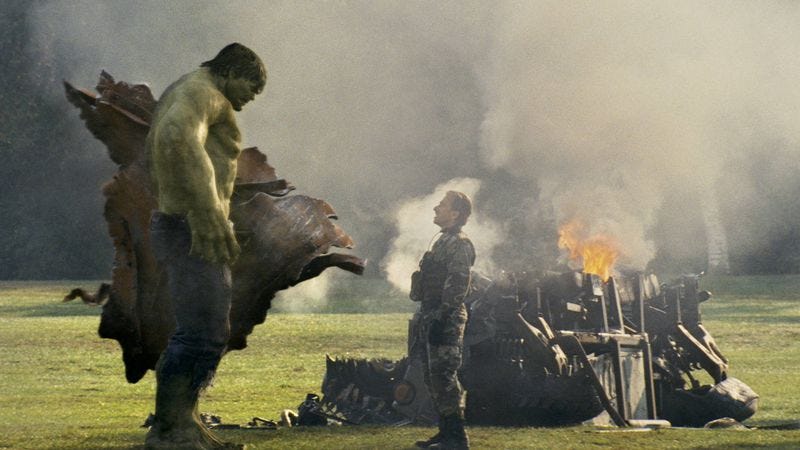 Off to Brazil, where an effort to capture Banner fails, even with a master soldier, Emil Blonsky (Tim Roth), leading the troops. Blonsky is intrigued by Banner's alter ego, but right now the mission is to find Banner. He in turn slips back into America, where he is in search of the mysterious "Mr. Blue", with whom he as "Mr. Green" has corresponded in an effort to find a cure.
Off to Brazil, where an effort to capture Banner fails, even with a master soldier, Emil Blonsky (Tim Roth), leading the troops. Blonsky is intrigued by Banner's alter ego, but right now the mission is to find Banner. He in turn slips back into America, where he is in search of the mysterious "Mr. Blue", with whom he as "Mr. Green" has corresponded in an effort to find a cure.Banner reunites, reluctantly, with Betty, who has been seeing Dr. Leonard Sampson (Ty Burrell) romantically. At Culver University where Betty teaches, her father the General sweeps in to try and take Banner alive, but Hulk manages to fight off the troops. Even Blonsky is beaten hard, but the upside is that he was given a bit of the serum earlier, which probably saved his life. Blonsky however, wants more.
Again on the run, Banner finally manages to meet up with "Mr. Blue", real name Dr. Samuel Sterns (Tim Blake Nelson). Sterns is a bit wacky and delighted to have "Mr. Blue" there, and attempts to get Banner treatment. However, two things go wrong: first, Ross and Blonsky manage to find Banner and Betty, and Sterns seems more interested in harvesting Banner's blood to make humans impervious to disease rather than destroying the blood Sterns has collected, which Banner insists poses danger.
Blonsky, now becoming bonkers, forces Sterns to inject him with more serum, where he becomes Abomination, and it is a battle between Abomination and Hulk. Banner once again flees into the night after the gigantic Battle in New York, while in a bar, General Ross drowns his sorrows until Tony Stark (Robert Downey, Jr.) visits to tell him 'they' are forming a group.
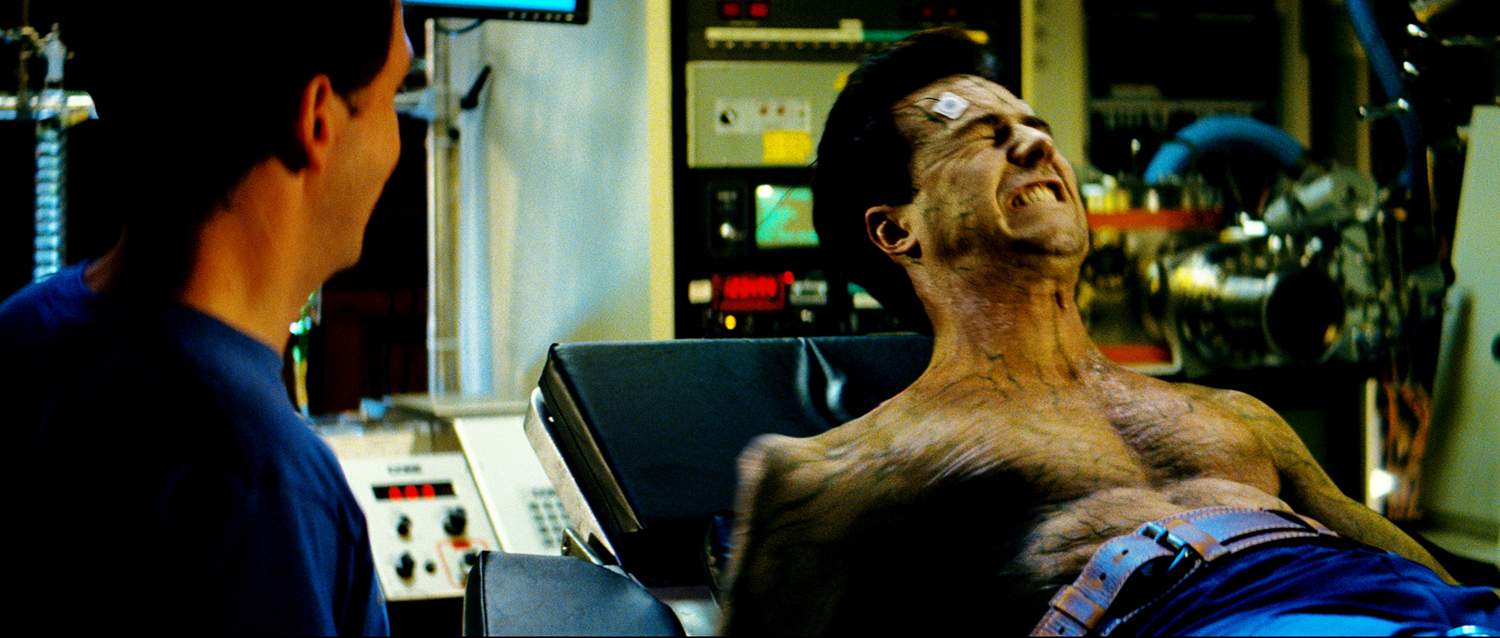 As I am not well-versed in the Chapter and Verse of the Marvel Cinematic Universe, I cannot say for certain whether or not General Ross' involvement with Bruce Banner has ever been brought up in any other MCU film where Ross has appeared. I don't think Betty Ross, Abomination or Samuel Sterns has ever been mentioned again, which makes The Incredible Hulk's connections to the large MCU all the more puzzling.
As I am not well-versed in the Chapter and Verse of the Marvel Cinematic Universe, I cannot say for certain whether or not General Ross' involvement with Bruce Banner has ever been brought up in any other MCU film where Ross has appeared. I don't think Betty Ross, Abomination or Samuel Sterns has ever been mentioned again, which makes The Incredible Hulk's connections to the large MCU all the more puzzling.The Incredible Hulk, in my view, is kind of forgotten or at least lost in the shuffle because unlike other MCU films, it isn't an actual origin story. If my memory of the other films that introduce a Marvel Cinematic Universe character (Thor, Ant-Man, Captain America: The First Avenger for example), each takes at least the first ten or fifteen minutes to set up their various worlds and give you an outline of the main character (arrogant Norse god, good-hearted thief, skinny weakling from Brooklyn). The Incredible Hulk doesn't. Instead, in a decision which director Louis Leterrier and screenwriter Zak Penn (with work from an uncredited Norton) made and whose wisdom I don't get, they decided to essentially start in medias res, with us getting how Banner became Hulk in the opening credits.
Why it opted for this I cannot guess. Perhaps Marvel figured audiences already knew Hulk's origin story and decided to move further ahead. Perhaps they worried they would repeat themselves, a worry that has merit. Whatever the reason, The Incredible Hulk's decision to forgo the traditional origin story is one of its greatest weaknesses.
As we kind of get thrown into things, all the aspects that the film wants us to care about: the love story, the battle between Hulk and Abomination, even hints about future Hulk-related stories, gets tossed at us without much to make us care.
This is not helped by some of the performances. Tyler is weak as Betty, delivering all her lines in this breathy manner that veers dangerously close to parody. Roth is a pretty solid actor, but here he couldn't seem to decide whether to make his menace mirthful or monstrous, as if he wanted to both be serious and camp up Blonsky. It's not a slam on Roth's height, but he seems rather small to be imagined as this dangerous, powerful hitman/soldier. It is possible to be a short man with great killing prowess, but at one point when the 5'7" Roth stands in front of this gigantic CGI Hulk, the result is laughable.
Hurt too veered between serious and silly, chomping at his cigar to comic effect. Nelson appears to be the comic relief, or at least plays it as such. Burell, who is now best known as the somewhat dimwitted paterfamilias on Modern Family, has little to do but is surprisingly strong in a dramatic turn.
As for Norton, I think he is a respectable, even good Bruce Banner/Hulk. He does struggle with the few bits of comedy he's given, such as accidentally saying "You wouldn't like me when I'm hungry" in Portuguese when he meant "You wouldn't like me when I'm angry", making his delivery rather forced. However, when going for a slightly more dramatic moment, Norton manages to hold his own.
Looking at it now, The Incredible Hulk seems a bit dated, especially in terms of its visual effects. It does not have compelling characters or a story that is particularly interesting. I don't think it's terrible, but it could have been so much better. The Incredible Hulk is almost the Chuck Cunningham of the Marvel Cinematic Universe: we know it exists but we never actually acknowledge it.
Next Marvel Cinematic Universe Film: Iron-Man 2
DECISION: C-
Wednesday, July 11, 2018
Gotham: Mandatory Brunch Meeting Review
GOTHAM: MANDATORY BRUNCH MEETING
I was not particularly overwhelmed with Mandatory Brunch Meeting but not because it was in any way terrible. It had some nice touches, but it also has perhaps some cliched ideas.
Basically, we have two stories running simultaneously. The main story involves Jerome Valeska (Cameron Monaghan), whom Gotham is still playing coy about whether he is or isn't The Joker. His master plan involves finding one Xander Wilde, a reclusive structural engineer. Why Jerome is on this mad hunt slowly reveals itself to Captain Jim Gordon (Ben McKenzie) and Detective Harvey Bullock (Donal Logue), or as Jerome calls them, 'Jimbo and his bearded sidekick'.
As part of Jerome's plan to unleash chaos in Gotham City, he calls a meeting of what he dubs 'a Legion of Horribles', with the help of Oswald Cobblepot/Penguin (Robin Lord Taylor). Pity he opted not to call them 'a basket of deplorables', but there it is. Jerome has no interest in taking over the underworld, leaving that up to Penguin or anyone else interested in taking over the criminal enterprises. Jerome's plans do involve a collection of villains along with Pengy; there are his fellow Arkham inmates Jervis Tetch/Mad Hatter (Benedict Samuel) and Jonathan Crane/The Scarecrow (David W. Thompson), along with two figures we simply don't see enough of. That would be Bridgit Pike/Firefly (Michelle Veintimilla) and Victor Fries/Mr. Freeze (Nathan Darrow).
For once, Jerome is the one caught thanks to Echo (Francesca Root-Dodson), Xander's proxy, who delivers him to Xander and is placed in a labyrinth. Gordon and Bullock find Xander, and are shocked to find that Xander is really Jeremiah Valeska, Jerome's twin brother. No surprise that Tetch and Crane manage to get to Echo, but Jeremiah is saved by Gordon & Bullock and taken into protective custody, meaning he goes to the GCPD HQ, which has proven time and again to be the worst place to take anyone in need of saving.
 The second plot involves Edward Nygma, who is now fully immersed as The Riddler (Cory Michael Smith). He is hosting a game show in The Narrows, Riddle Time, where contestants can gain a fortune if they do two things: answer The Riddler's riddle correctly and stump The Riddler with a riddle of their own. Get either portion wrong and The Riddler gets to 'spin the wheel', disposing of the loser by the method the wheel lands on.
The second plot involves Edward Nygma, who is now fully immersed as The Riddler (Cory Michael Smith). He is hosting a game show in The Narrows, Riddle Time, where contestants can gain a fortune if they do two things: answer The Riddler's riddle correctly and stump The Riddler with a riddle of their own. Get either portion wrong and The Riddler gets to 'spin the wheel', disposing of the loser by the method the wheel lands on.In comes Dr. Leslie 'Lee' Thompkins (Morena Baccarin). She wants this wicked game stopped, and to do so accepts to be the next contestant. If she wins, he has to end the game. If she doesn't, The Riddler gets to kill her.
The Riddler, for once, has met someone who is not just on an equal intellectual level, but who manages to outwit him by playing him off his alter ego, Ed. It's a strange game of seduction between these two as they battle it out.
Again, Mandatory Brunch Meeting is not terrible. However, some things you just kind of wonder about.
My first issue with it is the violence. This is the second Gotham episode, at least that I can remember, where we see someone blown up. The violence on Gotham has been a very sore point with me, and this is still something that continues to play havoc with me. Granted, violence on Gotham should be expected, and the suicide bombing is part of the plot. However, I still hold that a more subtle manner can be found to show without showing someone blown up.
My second issue is with Bruce Wayne (David Mazouz) and Alfred Pennyworth (Sean Pertwee), who essentially disappear from Mandatory Brunch Meeting as soon as Gordon tells them to stay out of the investigation. I figure we will see them in a future episode, but given how Gordon and Bullock managed pretty good detective work on their own, why hint about something that won't happen?
 Third and last is Penguin. I am not sure why Gotham opted to have Pengy go for some weird A Flock of Seagulls meets RuPaul's Drag Race get-up, but Oswald's ensemble and hairdo looked like something a little too outlandish, even for him.
Third and last is Penguin. I am not sure why Gotham opted to have Pengy go for some weird A Flock of Seagulls meets RuPaul's Drag Race get-up, but Oswald's ensemble and hairdo looked like something a little too outlandish, even for him.Pengy has had curious wardrobes and hairstyles, but this look is pretty bonkers even for him. It isn't exactly distracting, but there's something to be said when in a room with The Scarecrow, Mr. Freeze and Firefly, you manage to look even crazier than all of them.
How Jerome managed to rope in Firefly and Mr. Freeze, who again are perpetually underused, especially Freeze, we know not.
I confess to not being crazy about the 'lost twin brother' bit, and the teasing of 'Is Jerome the Joker or not?' is starting to wear thin. With Monaghan's version of Jerome quoting The Killing Joke graphic novel's idea of 'we could go insane with one bad day', we keep getting hints Jerome might be our notorious villain. Monaghan's version, drawing heavily from Heath Ledger's Joker from The Dark Knight, keeps pushing that idea.
And yet, Gotham continues this fan-dance about Jerome, and what if Jeremiah ends up as our Clown Prince of Crime? That remains to be seen.
There were some great things in Mandatory Brunch Meeting. Of particular note was the cinematography, which has always been Gotham's greatest technical achievement. Smith, though part of the B-plot, was excellent as The Riddler, reveling in the grandiose nature of the character. Monaghan got that dream bit of playing polar opposites in the same scene, and he did quite well.
Mandatory Brunch Meeting was good not great, but how this story-line goes is still something that as of yet I don't know. Still, it is a good buildup to something that I trust will pay off.
6/10
Next Episode: That's Entertainment
Sunday, July 8, 2018
Gotham: One of My Three Soups Review
GOTHAM: ONE OF MY THREE SOUPS
Last time on Gotham, we had one of the best episodes that seemed to fill so much within its short time frame. This time, with One of My Three Soups, we seemed to fill up so much time with very little. It was not not a terrible episode, but it just seemed to be an introduction to a larger story where despite what should be a lot of tension and danger, I really felt nothing. For me, One of My Three Soups was all sound and fury, signifying something, but not much.
The triumvirate of Jonathan Crane (David W. Thompson) aka The Scarecrow, Jarvis Tetch (Benedict Samuel) aka The Mad Hatter, and Jerome Valeska (Cameron Monaghan), maybe The Joker, maybe not (Gotham so far is teasing but not never confirming) have joined forces to escape Arkham Asylum. In the ensuing chaos of letting all the inmates out, that should keep Captain Jim Gordon (Ben McKenzie), his loyal Detective Harvey Bullock (Donal Logue) and the rest of the GCPD busy while they work in tandem on a much larger plan.
Tetch seems to take the lion's share of this scheme, hypnotizing citizens via the radio to go up to the roofs and commit mass suicide at midnight.
Is it me, or have we seen this scenario before somewhere?
Jerome, for his part, wants information from his sleazy Uncle Zack (John Treacy Egan). For once, though, Jerome finds himself outwitted by his Uncle. The owner of a dive diner, he had prepared three soups: one too hot, one too cold, one just right. However, this was no offbeat homage to Goldilocks. The cold soup was for Zack. The just-right soup was for the strongman Zack brought for protection once he heard his nephew had escaped. The hot was for Jerome, whom Zack intended to torture and kill.
Pity that Bruce Wayne (David Mazouz) decided that killing Jerome was the wrong thing to do. Determined to bring him in, he interferes, much to Jerome's delight. Is Jerome thankful? No, for he still wants to kill Bruce, and it's only the interference of Selina Kyle (Camren Bicondova) who saves Bruce.
Ultimately, Gordon manages to find a way to stop the mass suicide in about the only real clever moment of the episode.
In the very minor plot, Barbara Kean (Erin Richards) discovers the powers she has within her that Ra's al Ghoul (Alexander Siddig) gave her. She is now the Demon Head, able to command a squad of assassins known as the League of Shadows. Some don't like the idea of a woman being in charge, but she subdues them, only to have the female assassins kill those who knelt before Barbara.
Point One for Female Empowerment and Representation.
I admit that Gordon's method of saving everyone was clever. Tetch had hypnotized them to where if anyone received counter-commands to not jump, they'd jump sooner. "I can't save you," Gordon sadly says over the airwaves. "Save each other". To the surprise of Tetch and everyone, the moment they're all supposed to jump, they end up stopping the person next to them from jumping.
That was an order Tetch had not counted on, and that saved everyone including Bullock, who sacrificed himself to find the right radio station and thus, getting himself hypnotized.
However, this seemed to come from more a place of frustration and resignation than any intellectual conclusion from Gordon. This is how McKenzie performs this scene: rather than have Gordon come up with this brilliant resolution, he almost stumbles upon it.
Mazouz and Bicondova continue to be standouts, more her than him and that's only because she at least has conflict when facing off against Jerome. Mazouz here makes Bruce almost into a scold, though to be fair his scene at the Gotham City Police Department HQ was good.
One of My Three Soups also suffers from a cacophony of villains, almost all of whom really had too little or too much to do. Jonathan Crane got the shortest stick, as he seemed to barely be in the episode. Samuel loved vamping it up to full force as Tetch, but this time it seemed so wildly over-the-top as to come across as cartoonish than menacing.
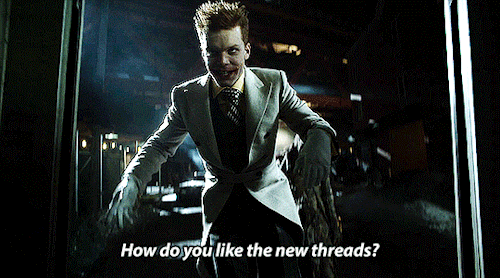 Monaghan has a very difficult task: to be and not to be The Joker while also pushing away comparison's to his generation's definitive take on The Joker: Heath Ledger.
Monaghan has a very difficult task: to be and not to be The Joker while also pushing away comparison's to his generation's definitive take on The Joker: Heath Ledger.For better or worse, all future Jokers, especially for Gotham's main viewing audience, will be held to comparison with Ledger's version from The Dark Knight. I imagine most Gotham viewers barely remember Jack Nicholson's version, let alone Cesar Romero's camp Clown Prince of Crime, so their only point of reference is Ledger, and Monaghan is doing a variation on Ledger.
It is so hard as to be virtually impossible not to see Monaghan doing a Ledger variation with his maybe/maybe not Joker, but bless him for trying to find his own stamp on things.
One thing that especially troubled me was the violence, which is something I have commented and criticized the show on. From the opening with a guard's throat slashing to having a hypnotized married couple crushed to death by a construction ball, it was far too gruesome. Oddly, the show restrained itself when we had the League of Shadows massacre, and that was done through lighting effects. That was good. The delight in the slaughtering wasn't.
One of My Three Soups left me slightly cold and bored. It's almost something we had to go through to set up a larger story. That may be the right course, but there really wasn't much to keep me interested this time.
3/10
Next Episode: Mandatory Brunch Meeting
Subscribe to:
Posts (Atom)


